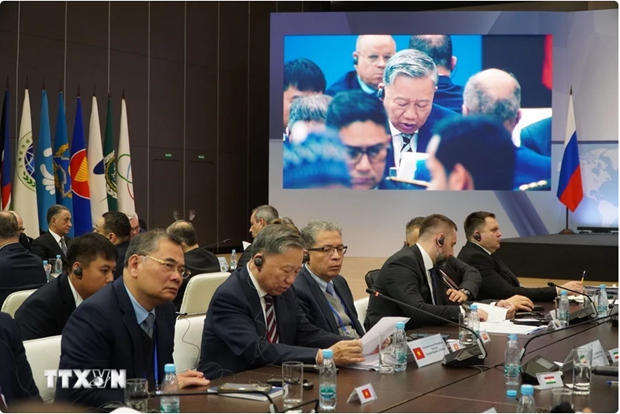 Society
Society

Two top officials of the people’s committees of Lào Cai city and province will attend court on Tuesday as defendants of a land eviction lawsuit filed by a resident.
 |
| Lào Cai City in northern Lào Cai Province. — VNA/VNS Photo |
HÀ NỘI — Two top officials of Lào Cai city and province will attend court on Tuesday as defendants of a land eviction lawsuit filed by a resident.
Phạm Thị Nghĩa, a resident of Lào Cai City’s Kim Tân Ward, filed a lawsuit against the committees’ decisions on land eviction and compensation after her family was evicted from the land they were living on since 1984 without allegedly being given “proper compensation”.
On Tuesday, Lê Minh Quang, chairman of the northern Lào Cai City People’s Committee, and Đặng Xuân Phong, chairman of Lào Cai Province People’s Committee, are both expected to attend court.
On June 19, 2014, the Lào Cai City People’s Committee issued three land acquisition decisions concerning the families of Phạm Thị Nghĩa, Phạm Văn Kha and Phạm Thị Nga in Kim Tân Ward, Lào Cai City.
Soon after, it also issued a decision on the compensation awarded to the three families. However, the evicted families did not find the deal offered by the chairmen of the city and the province people’s committees acceptable.
According to the provincial People’s Committee, the land the three families were using was allocated to the province’s transport department in 1992. However, the three families alleged that when they claimed the land in 1984, no authorities told them about the land allocation.
Moreover, the families were granted land-use right certificates in 1984 and in 2000, which had the signatures and seals of the chairmen of Đồng Tuyền Commune, Lào Cai Town – now known as Kim Tân Ward, Lào Cai City.
Unclear land origins, land mismanagement and improper compensation are said to be the major causes for land disputes in Việt Nam. Land-related issues account for 70 per cent of the complaints made by residents to state/government bodies. — VNS




.jpg)




